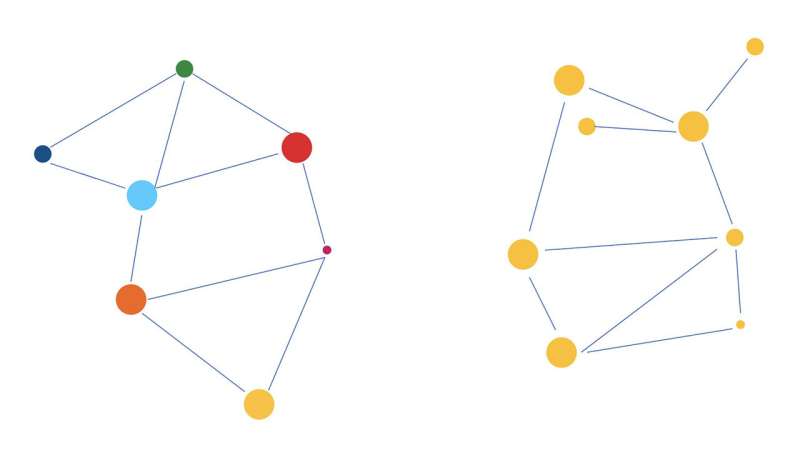Exploring how diverse social networks reduce accent judgments
Everyone has an accent. But the intelligibility of speech doesn’t just depend on that accent; it also depends on the listener. Visual cues and the diversity of the listener’s social network can impact their ability to understand and transcribe sentences after listening to the spoken word.
Ethan Kutlu, of the University of Iowa, will discuss this social phenomenon in his presentation, “Perception in context: How racialized identities impact speech perception,” which will take place May 24 at 12:15 p.m. Eastern U.S. as part of the 182nd Meeting of the Acoustical Society of America at the Sheraton Denver Downtown Hotel.
Kutlu and his team paired American, British, and Indian varieties of English with images of white and South Asian faces. While the accents differed, they were all normalized to have the same base intelligibility. They played these voices for listeners from a low-diverse (Gainesville, Florida) and high-diverse environment (Montreal, Quebec).
“Racial and linguistic diversity in our social networks and in our surrounding environments impact how we engage in perceiving speech. Encountering new voices and accents that are different from our own improves our ability to attend to speech that varies from our own,” said Kutlu. “We all have accents and embracing this is not hurting our own or others’ speech perception. On the contrary, it helps all of us.”
A participant’s ability to transcribe sentences decreased and they rated voices as more accented whenever the speech was paired with a South Asian face—no matter the English variety of the spoken word. Indian English paired with white faces was judged as heavily accented when compared to British and American English.
However, these results varied greatly by the listener’s social network and geographic context. Montreal participants, residents of a dual language city, were overall more accurate when transcribing speech. They did not change their judgments based on the faces they saw on the screen.
Conference: acousticalsociety.org/asa-meetings/
Citation:
Exploring how diverse social networks reduce accent judgments (2022, May 24)
retrieved 24 May 2022
from https://phys.org/news/2022-05-exploring-diverse-social-networks-accent.html
This document is subject to copyright. Apart from any fair dealing for the purpose of private study or research, no
part may be reproduced without the written permission. The content is provided for information purposes only.

Everyone has an accent. But the intelligibility of speech doesn’t just depend on that accent; it also depends on the listener. Visual cues and the diversity of the listener’s social network can impact their ability to understand and transcribe sentences after listening to the spoken word.
Ethan Kutlu, of the University of Iowa, will discuss this social phenomenon in his presentation, “Perception in context: How racialized identities impact speech perception,” which will take place May 24 at 12:15 p.m. Eastern U.S. as part of the 182nd Meeting of the Acoustical Society of America at the Sheraton Denver Downtown Hotel.
Kutlu and his team paired American, British, and Indian varieties of English with images of white and South Asian faces. While the accents differed, they were all normalized to have the same base intelligibility. They played these voices for listeners from a low-diverse (Gainesville, Florida) and high-diverse environment (Montreal, Quebec).
“Racial and linguistic diversity in our social networks and in our surrounding environments impact how we engage in perceiving speech. Encountering new voices and accents that are different from our own improves our ability to attend to speech that varies from our own,” said Kutlu. “We all have accents and embracing this is not hurting our own or others’ speech perception. On the contrary, it helps all of us.”
A participant’s ability to transcribe sentences decreased and they rated voices as more accented whenever the speech was paired with a South Asian face—no matter the English variety of the spoken word. Indian English paired with white faces was judged as heavily accented when compared to British and American English.
However, these results varied greatly by the listener’s social network and geographic context. Montreal participants, residents of a dual language city, were overall more accurate when transcribing speech. They did not change their judgments based on the faces they saw on the screen.
Conference: acousticalsociety.org/asa-meetings/
Citation:
Exploring how diverse social networks reduce accent judgments (2022, May 24)
retrieved 24 May 2022
from https://phys.org/news/2022-05-exploring-diverse-social-networks-accent.html
This document is subject to copyright. Apart from any fair dealing for the purpose of private study or research, no
part may be reproduced without the written permission. The content is provided for information purposes only.
